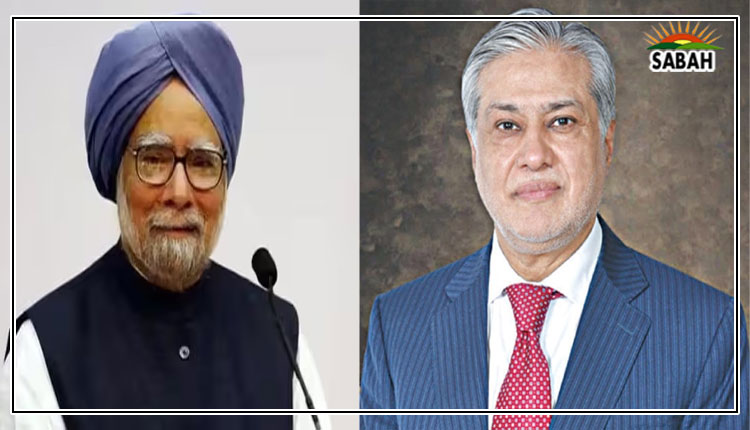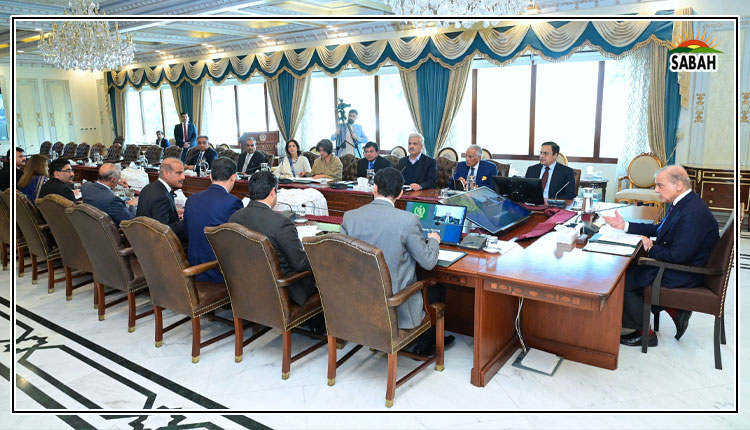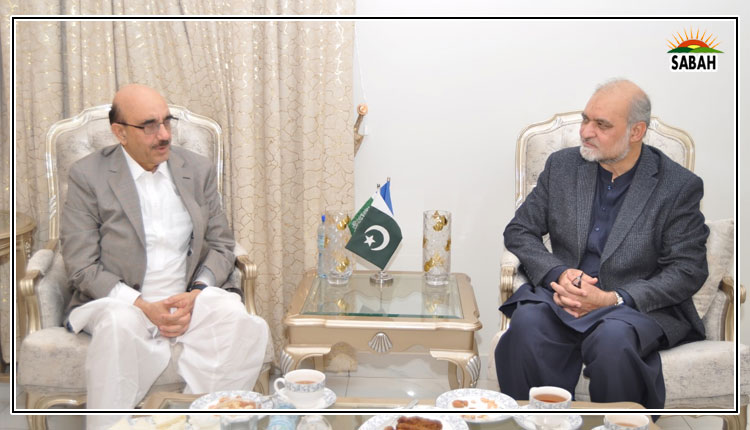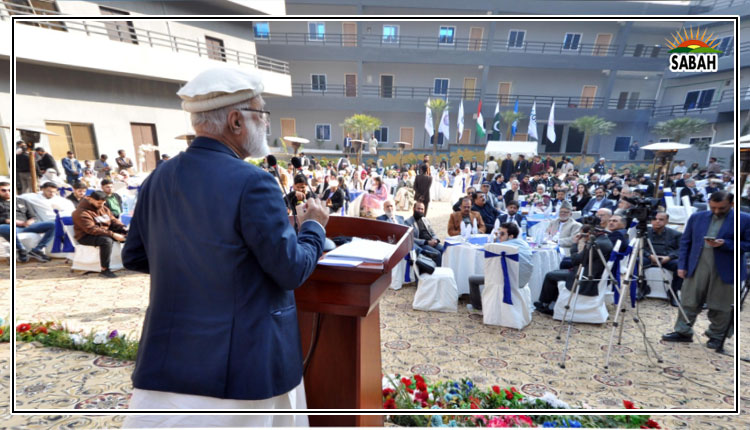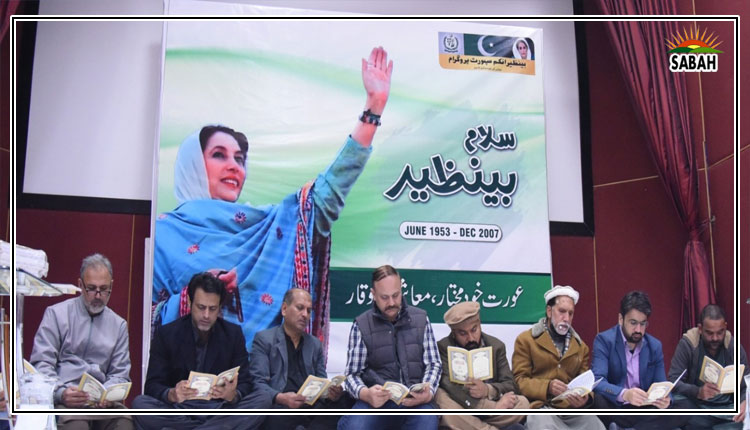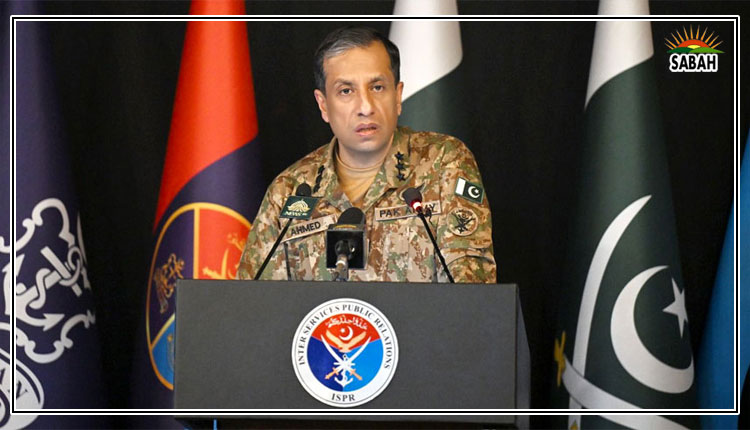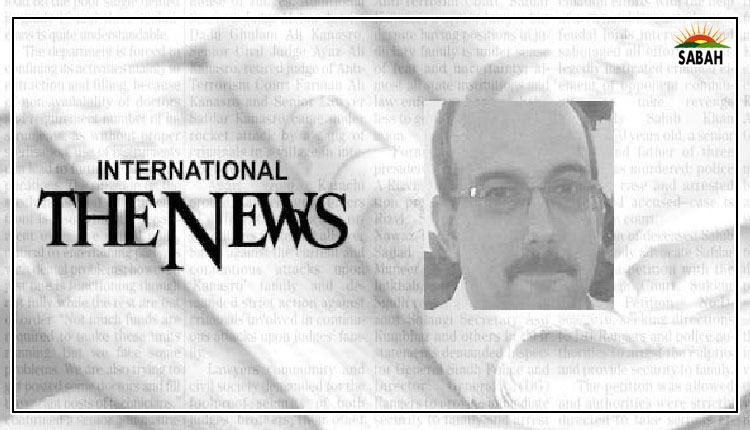Protecting free speech…Dr Naazir Mahmood
When Pakistan’s greatest war for freedom of expression was raging in the dark decade of General Ziaul Haq in the late 1970s, Ahfaz-ur-Rahman and Nasir Zaidi were at the forefront with their leaders Minhaj Barna and Nisar Usmani.
In April 2020, during the early weeks of the Covid-19 pandemic in Pakistan, Ahfaz bhai lost his battle against cancer. His death was a huge loss to Pakistan’s journalist community, and his colleagues, friends and, of course, students such as myself mourned him with deep sorrow.
Ahfaz’s family – wife Mahnaz Rahman and children Rameez and Tabinda – launched an award in his name, the Ahfaz Memorial Award for lifetime achievement in journalism. This year, Nasir Zaidi received the award.
When the climate for journalism darkens in the country, we remember the likes of Ahfaz-ur-Rahman. He was an irrepressible source of competence and courage for us. Whenever Ahfaz bhai realized that a benign voice was not enough to defend freedom of expression in the country, he would take to the streets with a loud and powerful roar.
Ahfaz-ur-Rahman began his career in the mid-1960s when the first military dictator General Ayub Khan was at his peak, controlling the mighty state machinery. He allegedly rigged the 1965 presidential elections against Fatima Jinnah and was planning to rule forever.
But there were democrats and journalists who could challenge him, and as a young journalist, Ahfaz-ur-Rahman was closely observing the stalwarts of journalism who could stand up to challenge the dictator and his allies who had imposed restrictions on free expression.
Ayub’s seemingly indestructible regime was crumbling, and China’s Cultural Revolution was in full swing when Ahfaz-ur-Rahman moved to China to work there as a journalist and translator. His two-year stint ended in 1969 when General Ayub’s regime came tumbling down only to vault another general to power.
In the 1970s, Ahfaz-ur-Rahman worked for various newspapers and magazines such as ‘Al-Fatah’ and ‘Musawat’. By the time General Zia toppled ZA Bhutto’s elected government and dissolved parliament unconstitutionally, Ahfaz-ur-Rahman had already become a dynamic follower of Minhaj Barna and Nisar Usmani and a leader of journalists in his own right. Thus began the war against General Zia’s arbitrary censorship, leading to the arrests of hundreds of journalists. Ahfaz-ur-Rahman was imprisoned, and Nasir Zaidi was one of the four journalists sentenced to public lashing.
Years later, Ahfaz-ur-Rahman documented this struggle in his invaluable book ‘Sab se bari jang’ which is now also available in English. His last major battle for freedom of expression was against General Musharraf’s dictatorship in the first decade of the 21st century. By the time Ahfaz bhai closed his eyes in 2020, he had penned over a dozen books, completed dozens of translations, wrote hundreds of features, and inspired millions of his readers.
Ahfaz-ur-Rahman was also an Urdu poet of considerable reputation with his poems concerning a wide range of political and social issues. He was interested in history, international affairs, politics, literature, and so many other disciplines. His heartfelt affiliation with the victims of atrocities around the world is reflected in his poems. Be it Kashmir or Palestine, Vietnam or Cambodia and Chile, he wrote about the people who struggled for democracy and freedom. This is the reason the Rahman family decided to institute an award for free speech that four journalists have won so far: Amar Jaleel, Asma Shirazi, Hussain Naqi and Nasir Zaidi.
Every year, at the award ceremony, an eminent scholar or journalist delivers an Ahfaz memorial lecture at the Art Council auditorium in Karachi, generously provided by Ahmed Shah.
Dr Jaffer Ahmed delivered the first lecture in 2022. In 2023 the award committee requested Amar Sindhu and Mazhar Abbas to deliver lectures. Last year, the committee also decided to honour some outstanding mass communication students from Federal Urdu University. This year, the theme of the ceremony was Palestine and the partisanship of Western media against Palestinian victims of Israeli rage.
Zarrar Khuhro who has emerged as a powerful voice of sane journalism in Pakistan delivered this year’s lecture on April 20, 2024. He highlighted the duplicity of Western media while covering the ongoing war on an oppressed people in the Middle East. He termed the war a misnomer as it is more of a genocide than an ordinary war between two standing armies. “In fact, it is a war on speech in which Western media is blatantly complicit.”
He debunked the perception that Western media is superior to the media in developing countries in any true sense of independent reporting. “There is no need to feel any inferiority complex in front of Western media.” Instead of being objective and impartial or neutral, Western media has crossed all limits in hiding facts.
They use expressions giving a milder touch to atrocities that are more barbaric than any other war in recent history. In a way, they are complicit in the genocide that they refuse to acknowledge. Zarrar exposed the role Western media has been playing in opinion formation that favours Israel and provokes people against Palestinians. “Israel kept achieving its goals thanks to highly favourable Western media that gave a monstrous look to Palestinians and presented Israeli forces as waging a just war.” Western media does not treat Palestinian victims as human beings, portraying them as animals that deserve instant death.
He reminded the audience of multiple incidents in which some top-ranking newspapers dehumanized Palestinians depicting them as animals or rodents. While thousands of Palestinians become targets of Israeli genocide, most of Western media has not displayed any serious sympathy for starving mothers and dying children. “Many Western anchors start questioning a Palestinian guest by asking if they condemn Hamas.”
Dr Jaffer Ahmed introduced Nasir Zaidi and paid him glowing tributes for his unceasing struggle for freedom of expression in the country. “Nasir Zaidi has become a legendary figure in the history of journalism in Pakistan, and no history of this profession would be complete without mentioning him.” Zaidi’s struggle spans over half a century as he is still an active leader of the PFUJ and remains present in nearly all activities, demonstrations and protests for journalists’ welfare and press freedom.
Nasir Zaidi in his acceptance speech bemoaned the sorry state of media freedom in the country. He dedicated his award to those journalists and political activists who struggled for democracy and freedom of expression in Pakistan.
He also talked about the underprivileged and the youth who must now come forward to claim their constitutional rights. “Pakistan has never been a conducive country for media professionals right from 1947; censorship has always been there in one form or another.” Zaidi held both civilian and military governments responsible for the lack of freedom of expression in the country.
Nasir Zaidi administered the oath to the graduating students of the mass communication department to abide by all ethical, moral, and professional obligations as journalists. Zaidi also gave some hope to new journalists by saying that being innovative and investigative is the key to excelling in their profession, without compromising on basic principles of integrity in journalism.
At the ceremony, Mahnaz Rahman and M Tehseen from South Asia Partnership presented the award to Nasir Zaidi. The Rahman family has done a good job by initiating the awards and appreciating Urdu University students who perform well in their studies of journalism.
Courtesy The News



